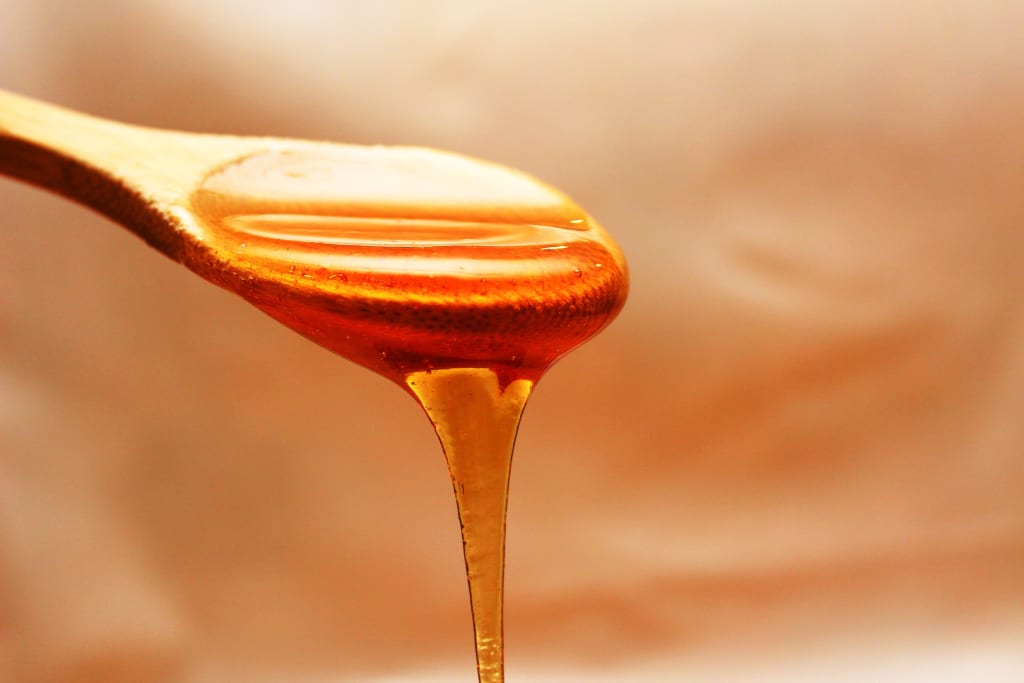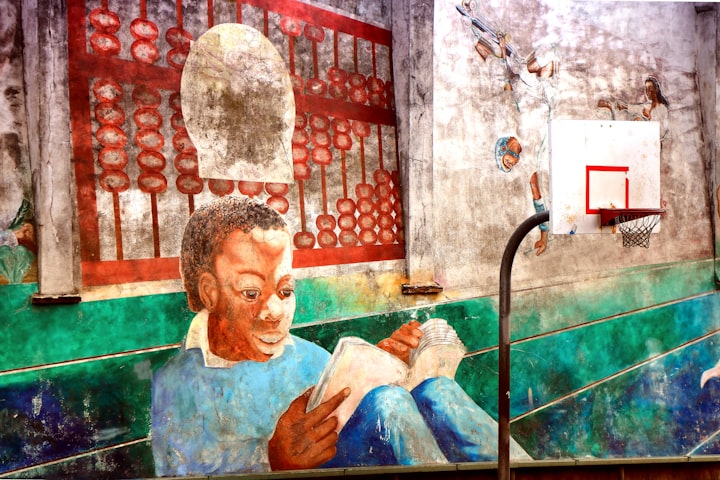Limos Rises Again
Small things matter; they always have.

2052.
They predicted the oceans would do us in. No. It was the bees.
It was the flies. It was all the creepy crawlers we swatted away mindlessly before the Fall. Most imagined the end would come barreling out of the sky. Or else some forgotten primordial beast would lumber out of the ocean and consume us for our transgressions against nature.
Our demise was far more ironic. One day, the inane buzzing simply stopped—then the entire world collapsed.
Across the globe, the insect phyla imploded without cause or explanation. In the most catastrophic extinction event since the dinosaurs, ten quintillion bugs died off. I couldn’t even write that figure down if you asked.
In the beginning, many people rejoiced. No cockroaches or mosquitoes? Sounds like a party to me! In time, they learned what they should have sooner. Small things matter; they always have.
Without bees, the world experienced a ninety percent drop in agricultural production. No dung beetles signalled elevated nitrogen levels in waste which stifled plant growth in the remaining 10 percent. Our shit literally started killing us.
The insect extinction meant rodents and small creatures starved to death. The animals that fed on those creatures, thus, had no food and also starved. Which meant the animals that fed on those animals starved, and so on. You get the idea. Everything and everyone was dead or dying. And we were screwed.
“You’re doing it again, love,” Pat teased, nudging my leg with the foot of his weather-beaten hiking boots. After five years of too little food, my husband’s face appeared sallow. His sea-green eyes had sunken in, yet remained kind.
“Doing what?”
“You know what. Thinking, dreaming, plotting. You spend a lot of time like that lately, Effie.”
I gestured to the scene before us. All that nothing, “Well, there’s not much else to do around here.”
Patrick grabbed hold of my hand and intertwined his fingers with mine. I couldn’t help but notice how frail his forearm looked, how cold his limbs felt to the touch. My husband was one of those eccentric survivalist types who was constantly on guard for an imagined zombie invasion. Shortly after our marriage, we bought a house, built a nice cellar and filled it, over the years, with enough food to last a lifetime — or, at least, until some genius scientist figured out a crafty solution to save Earth. That’s what we thought, anyway. The fruits of our paranoid preparedness ran out three months ago. So, we’ve had to adapt.
Adapting was becoming quite the fad.
Everyone was a ghost of themselves these days. Jutting bones, sharp edges and vacant stares replaced hearty flesh and full bellies. Turns out the extermination of all insect life was the solution America needed for its obesity problem all along.
We sat on a log on the far edge of our beekeeping farm. The embers of a slow-dying fire and the scent of charred meat hung in the air—a constant reminder of our latest transgression. Silence, save for the occasional whispering of the wind, violated the arid desert land.
All days were like this — unmoving, unchanging, a picture of nothingness and hopelessness. The setting sun was unseasonably cool for this time of year, and we sat like lizards, soaking up its last gift of heat.
Before the fall, summer revolved around tending to our bees. It was bitter work, and every moment blended seamlessly into the next. The blistering Phoenix sun. Sticky, sweat-lined limbs that super bonded each layer of clothing to the skin. The caress of sweet honeycomb riding on the back of the crisp winds. And the symphony of busy colonies, a constant soundtrack amidst the din of daily life. We woke at 6 AM each morning, cloaked in Michelin man suits, and trekked to this exact spot that housed our seventy precious hives.
Then, one day, on July 9th, 2047—I remember because it was my birthday—we entered the field, only to discover all our honeybees dead. Over a million bees and a lifetime of cherished work, gone in an instant.
“Are we bad people?” I asked after an extended pause, absentmindedly thumbing the heart-shaped locket I always wore. I tried not to look at the remains of our meal. Tried not to think about it, which of course had the opposite effect. So I continued fiddling with my necklace.
It was an unremarkable thing. Pat had bought it for some long-forgotten anniversary. It bore battle scars — dented and broken in places and obviously not genuine silver as the paint had chipped away. Still, it was the most precious item I owned. Inside, it held a tiny vial of honey no bigger than a fingernail—maybe the last taste of liquid gold on Earth—that I’d saved. I promised myself I would drink it at the end, when all seemed lost, and death was near.
Patrick said nothing. But unlike me, he stared directly at the blackened grease and marrowless bones.
“Pat, are we bad people?”
He stayed silent, but leaned forward and picked a wedding band off the ground.
A week ago, we’d stumbled upon a dilapidated cabin a few miles from our farm. When we entered, we started ripping open cupboards, ravaging for food. Then, we discovered the body of an old man, his wiry frame stretched out on his living room couch—like he’d resolved to take a five-minute nap and instead fell into oblivion. It had to have been recent; it didn’t smell bad and wasn’t stiff when we picked him up. Ravenous, heads spinning and stomachs screaming in agony, we made an impossible decision.
Patrick sighed and dropped the ring. Untangling our fingers, he placed both hands on the sides of my face and made me look him in the eyes. Those beautiful eyes. Even alarmingly thin, his thick shock of red hair now a distant memory, he was every bit the man I fell in love with those many years ago. “We are not bad people.”
I looked at the pile of clothes nearby. “But we—”
“Listen to me,” he murmured, planting a gentle kiss on my forehead. “There are no good or bad people at the end of the world. Only survivors and the dead.”
I held my husband’s gaze for a few moments. Then, I popped open the locket, loosed the vial of five-year-old honey, and downed it in one go.
About the Creator
Laquesha Bailey
22 years old literally, about 87 at heart. I write about self care, university life, money, music, books and whatever else that piques my interest.
@laqueshabailey






Comments (1)
I find myself coming back to this story ever so often. I love the pacing of it and how descriptive the setting is. And the final line is delivered so simply but still has a chilling affect. If you ever decided to come back to Vocal, I hope you see this and how much of a fan I am of your writing. Well done